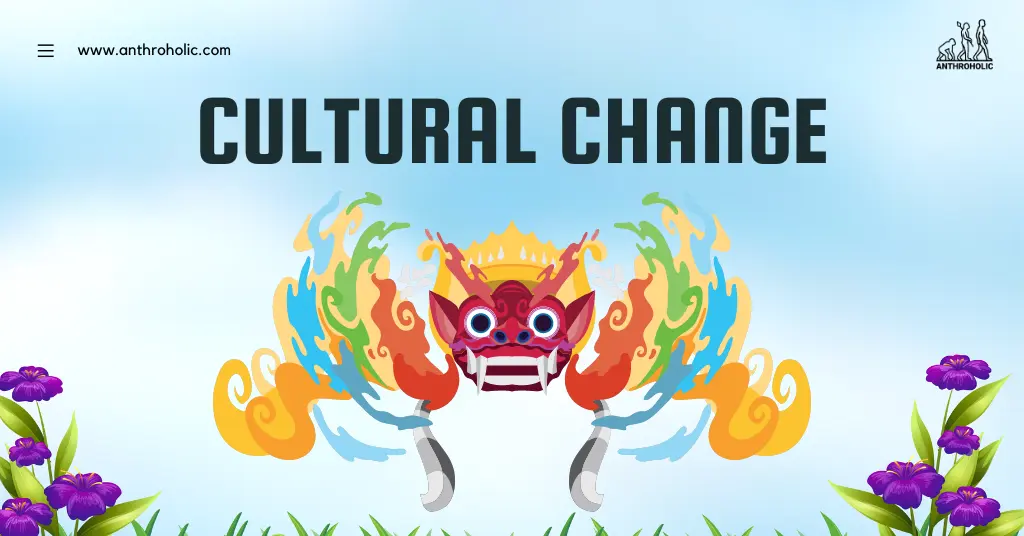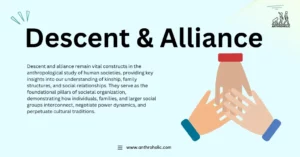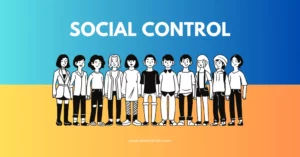AI Answer Evaluation Platform Live Now. Try Free Answer Evaluation Now
Cultural Change
Cultural change refers to the transformation, modification, or shifts in the cultural patterns of a society over time. This change might manifest in beliefs, values, norms, symbols, and artifacts, among others [1]. In anthropology, understanding cultural change is essential as it helps in deciphering the underlying factors that drive societies to adapt or evolve.

Definition and Characteristics
Cultural change is the dynamic transformation of shared practices, beliefs, and behaviors within a community or society over time. It involves an alteration in the collective mindset, often in response to changes in the environment, technology, or social dynamics [2].
Characteristics of Cultural Change
- Dynamic: Cultural change is never static; it continually evolves and adapts [3].
- Influence of External Factors: Changes often occur in response to technological advances, political shifts, or global events [4].
- Variable Pace: Change can occur slowly through evolution or rapidly as a revolution [5].
- Irreversible: Once a culture changes, it often cannot return to its previous state [6].
- Inclusive: Cultural change affects almost all aspects of society, from language to social norms [7].
Factors Influencing Cultural Change
Cultural change is influenced by a myriad of interconnected factors that interact in complex ways. Here are some primary factors:
1. Technological Advancements
Table 1: Impact of Technology on Cultural Change
| Technology Type | Cultural Impact |
|---|---|
| Internet | Globalization, Information Sharing |
| Medical Innovation | Changes in Health Practices |
| Transportation | Increased Mobility, Connectivity |
Technology plays a significant role in shaping cultural norms by introducing new ways of communication, work, and leisure.
2. Economic Changes
Economic fluctuations influence cultural change by altering social structures, roles, and interactions within a community. The growth of global economies has led to a shift in traditional roles and relationships.
3. Political Factors
Political systems, governance, laws, and policies directly impact cultural change, affecting everything from individual rights to the overall societal framework.
4. Environmental Factors
Climate change and environmental degradation have driven communities to adapt their cultural practices to sustainably interact with their surroundings.
5. Social Interactions and Migration
Social interactions, migration, and globalization contribute to the mixing of cultures, leading to mutual influences and the emergence of hybrid cultural forms.
Recent Updates and Emerging Trends in Cultural Change
Understanding cultural change is an ongoing journey, and in recent years, new insights and developments have emerged. Below, we delve into some of these updates:
1. Digital Culture and Social Media
The rise of social media and digital platforms has created new cultural dynamics, affecting everything from identity formation to political activism. This phenomenon has led to significant debates and research into the effects of online interaction on cultural norms.
2. Climate Change and Sustainability
With the urgent need for climate action, there’s a global shift towards sustainable living. This movement has affected cultural practices, leading to a more conscious relationship with the environment and a change in consumer behaviors.
3. Impact of COVID-19 Pandemic
The COVID-19 pandemic has forced unprecedented changes in cultural behaviors worldwide. Social distancing and remote work have altered traditional practices and may have lasting impacts on cultural dynamics.
4. Globalization and Cultural Hybridization
Globalization continues to drive the fusion of various cultural elements, leading to the emergence of hybrid cultures. This complex interaction provides both opportunities for enrichment and challenges in maintaining cultural identities.
Cultural Change in Specific Contexts
Analyzing cultural change in specific regions or contexts allows for more nuanced understanding. Some examples include:
A. Urbanization and Cultural Shifts
Table 2: Urbanization and Its Impact on Cultural Change
| Urban Factor | Cultural Impact |
|---|---|
| Increased Density | Shared Community Values |
| Economic Growth | Shift in Social Roles |
| Architectural Evolution | Influence on Lifestyle |
Urbanization continues to shape cultural patterns, especially in emerging economies, where rapid urban growth leads to significant social and cultural transformations.
B. Indigenous Cultures and Change
Indigenous communities are experiencing cultural change driven by various factors such as legal recognition, integration into the national economy, and environmental changes.
Implications and Future Directions
Understanding cultural change is vital for shaping policies, education, and global collaboration. It offers insights into how societies respond to challenges and opportunities, providing a roadmap for fostering positive growth and development.
Future Research
More interdisciplinary research is required to understand the complex interplay between different factors influencing cultural change. Collaboration between anthropologists, sociologists, economists, and environmental scientists can provide a comprehensive view.
Policy Implications
Governments and organizations must recognize the importance of cultural change in shaping policies that are responsive to societal needs and aligned with global trends.
Conclusion
Cultural change is an intricate and continually evolving process, deeply ingrained in the fabric of human existence. The study of cultural change offers profound insights into human nature and society, helping us navigate the complexities of our ever-changing world. Recent developments like digital transformation, sustainability movements, and global pandemics further emphasize the need to continuously explore and understand the dynamics of cultural change.
References
[1] Kroeber, A. L., & Kluckhohn, C. (1952). Culture: A Critical Review of Concepts and Definitions.
[2] O’Neil, D. (2006). Cultural Anthropology Tutorials, Behavioral Sciences Department, Palomar College, San Marcos, California.
[3] Tylor, E. B. (1871). Primitive Culture.
[4] Inglehart, R., & Baker, W. E. (2000). Modernization, Cultural Change, and the Persistence of Traditional Values. American Sociological Review, 65(1), 19-51.
[5] Appadurai, A. (1996). Modernity at Large: Cultural Dimensions of Globalization.
[6] Boas, F. (1887). The Study of Geography. https://www.jstor.org/stable/664572
[7] Geertz, C. (1973). The Interpretation of Cultures.




